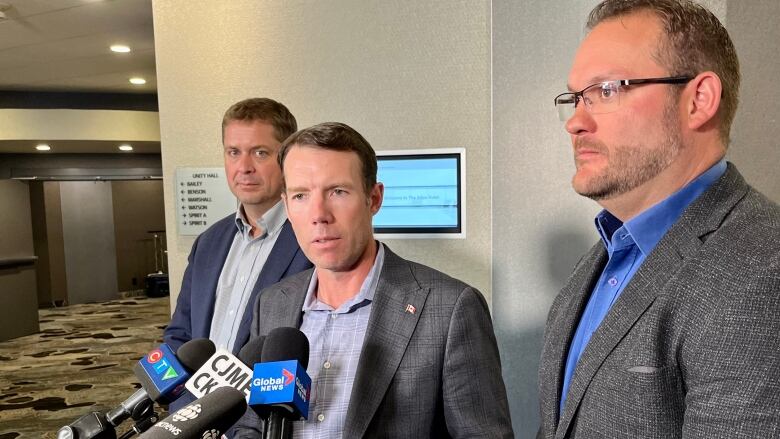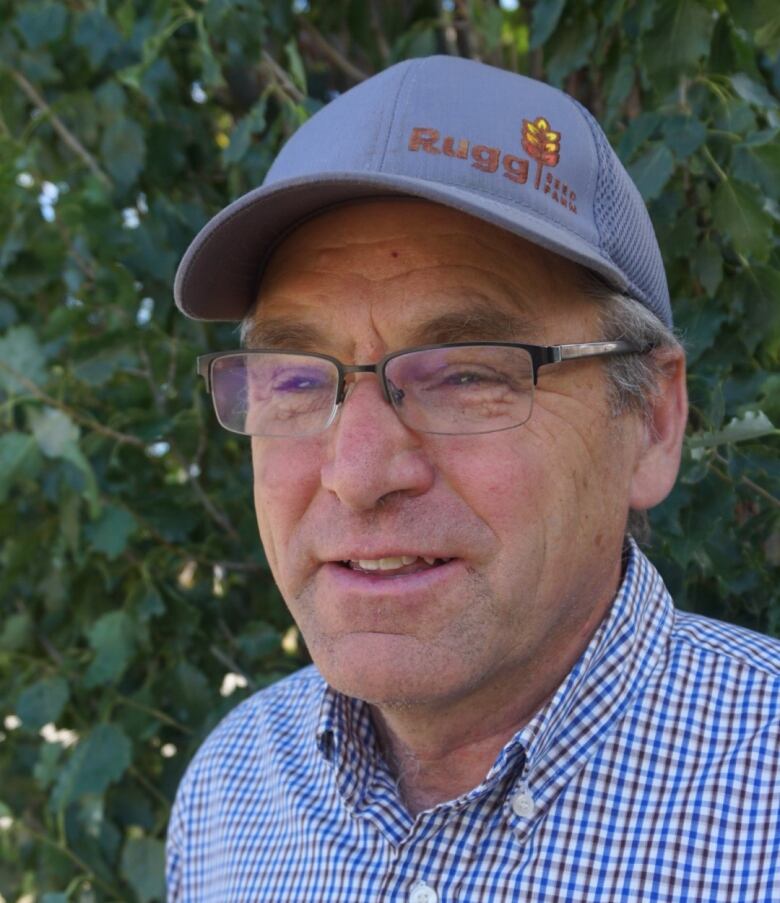Sask. farmers, ag organizations question 'arbitrary target' to reduce fertilizer-related emissions by 30%
Federal government soliciting ideas from farmers on how to reach target

Farmers and politicians gathered in Regina on Thursday to talk fertilizer.
A federal government proposal toreduce fertilizer-related greenhouse gas emissions by 30 per cent has been met with significant concern by farmers and politicians. Three Conservative MPs met with farmers and agricultural organizations at the Atlas Hotelto hear their concerns, many of which focus on what they call an "arbitrary target" and a lack of consultation.
Todd Lewis farms near Gray, Sask., and serves as second vice-president with the Canadian Federation of Agriculture.He saidfarmers want clarity about what the governmentwants.
"Maybe under the current modelling, if we get the modelling right, we could be at 30 per cent overnight. Nobody really knows where it came from or what it means," Lewis said.
"Thirty per cent of what, I think is the confusionpart for producers. Is it 30 per cent of fertilizer? Thirty per cent of what emissions?"
Lewis insisted that farmers are constantly looking at ways to reduce costs and save money, and many are already upgrading equipment, testing soil, and refining where and how much fertilizer they use.
He admitted that some of the concern being raised has to do with the possibility of reduced fertilizer use leading to smaller yields and lower income for farmers, but he felt the conversation needs to be larger than that.
"This isn't a partisan issue. It'sabout our livelihood, and it's about what farmers want to do to continue to support not only their livelihood but really domestic production and international production as a huge part of what we do here in Saskatchewan."
Regina-area Conservative MPs Andrew Scheer and Warren Steinley met with the group, along with Alberta Conservative MP John Barlow. Barlow echoed the concern about the Liberal government's target.
"I don't think you'd talk to a single producer who doesn't want to use less fertilizer and use less fuel. They want to be as efficient as possible. The frustration with this is what is this arbitrary number this 30 per cent that they've come up with. Where did it come from, why that number, and are you giving them any other wiggle room or discussion on how we can reach that?"
The federal government is soliciting ideas from farmers on how to reach the 30 per cent reductionthis summer. The Conservative MPs say there should be more direct consultation, and they vowed totake the group's concerns back to Ottawa.
Not all producers take umbrage with the government's target, however. Bladworth, Sask.-area farmer Ian McCrearyhas done extensive work to minimize his use of nitrogen fertilizerand arguedtargets are less important than just getting to work.

"I really think it's irresponsible for people to fight with having a target to reduce emissions. It's not a question ofwhether or not we need to reduce the emissions from nitrogen fertilizer. It's a question of how do we do it efficiently and effectively."
McCreary, whowas not at the meeting,lamented the reactionary stance being taken by many in the grain and oilseed sectors, noting that cattle producers stepped up when challenged to reduce emissions on that side of the industry.
"We as farmers are on the front line of climate change," he said.












_(720p).jpg)


 OFFICIAL HD MUSIC VIDEO.jpg)
.jpg)



























































































